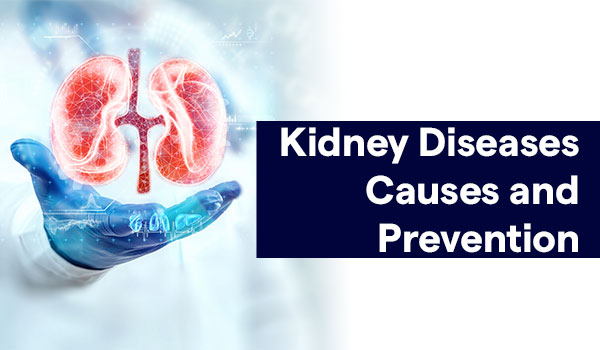
The two primary reasons behind the development of kidney diseases are diabetes and high blood pressure. Preventing the progression of kidney diseases requires effective control of underlying causes like diabetes and high blood pressure. Individuals can significantly lower their chances of developing kidney diseases by embracing a healthy lifestyle, regular exercise, a balanced diet, and avoiding excessive salt and sugar intake.
One of the most common symptoms of kidney disease is reduced urine which indicates a problem with the kidneys' ability to filter waste products from the body. Fatigue and tiredness are also prevalent symptoms of kidney disease, as the kidneys play a crucial role in producing a hormone called erythropoietin, which stimulates red blood cell production. When the kidneys are not functioning correctly, it causes anemia and fatigue. Individuals with kidney diseases often experience nausea and poor appetite due to the build-up of waste products and toxins in the body. Swelling in the feet, puffiness of the face and eyes, and itchiness are all signs of fluid retention, which occurs when the kidneys cannot eliminate excess fluid from the body. Shortness of breath can also occur due to fluid accumulation in the lungs.
If you have been diagnosed with high blood pressure, regularly monitoring your blood pressure levels, taking prescribed medications, and making necessary lifestyle modifications can help manage hypertension and prevent kidney damage. One of the primary reasons people fail to detect kidney diseases early is the need for more awareness. It is essential to prioritize regular check-ups and screenings to identify any underlying health issues, including kidney diseases. Early detection allows for timely intervention and treatment, reducing the risk of complications. Once kidney diseases are diagnosed, halting the condition's progression becomes challenging. However, regular appointments and consultations with doctors are important.
Transplantation and dialysis are often the last option for individuals with advanced kidney diseases. However, these treatments are expensive. To address this issue, the Government of India is taking steps to establish dialysis facilities in every district, offering free or low-cost dialysis to those in need. This initiative aims to ensure that individuals suffering from kidney diseases can access the necessary treatments, reducing the burden on hospitals and promoting overall citizen health.
One of the most significant lifestyle changes you can make is to quit smoking. Smoking not only damages your lungs but also harms kidney function and increases the risk of kidney disease. Another important aspect is reducing salt intake. Excessive salt consumption can raise blood pressure. Opting for a heart-healthy diet with plenty of fruits and vegetables provides essential nutrients and helps maintain kidney health. Regular exercise and maintaining a healthy weight are vital to kidney disease prevention. Physical activity helps improve blood circulation and cardiovascular health, reducing the risk of kidney damage. For individuals with diabetes, it is crucial to control blood sugar levels and regularly monitor HbA1c levels. High blood sugar damages the kidneys over time, leading to chronic kidney disease. Additionally, individuals with high blood pressure should take kidney-protective blood pressure medications as their doctor prescribes. Implementing these preventive measures reduces the likelihood of developing chronic kidney disease and promotes long-term kidney health.
Tired? Swollen feet? These could be signs of silent kidney disease. 1 in 7 people in India are at risk, early detection at the Nephrology Hospital in Delhi, Sir Ganga Ram Hospital can protect you. We have advanced tech & experienced doctors. We manage underlying conditions like Diabetes and high BP. We have specialized programs to keep them in check. Equipped with world-class technology and doctors we provide dialysis and kidney transplants ethically.
For more information, book an appointment with Sir Ganga Ram Hospital.